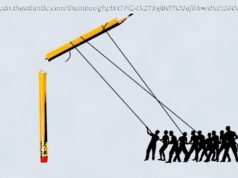The market rout has been painful for investors. But the sting may be especially sharp for anyone who has recently retired or is about to. Here’s what they can do now to minimize the damage.
It’s worth remembering that bear markets are not unusual or permanent. Since 1928 there have been roughly one or two a decade. They don’t always precede recessions. And they typically last less than two years. That said, retiring into a bear market can be harder on your financial well-being if you have to draw down from your portfolio before it has a chance to recover. A Vanguard study estimates that if you enter retirement during a bear market with a balanced portfolio (half stocks, half bonds) and rely on that portfolio for 100% of your income, making withdrawals when stocks are down could increase the chance you outlive your money by 31% and reduce your income stream by 11%.
«Every withdrawal turns a negative return, which is temporary in nature, into a permanent impairment of the balance. The amount withdrawn at a considerable loss reduces the opportunity to recover over the long term», the Vanguard researchers wrote. But there are a few strategies new retirees and those nearing retirement can use to protect their nest eggs during a bear market. Bolster your liquid reserves
Some planners recommend at least two to three years’ worth of income set aside in liquid assets such as cash or cash equivalents and short-term bonds to draw from during market downturns. Certified financial planner Craig Toberman, founder of Toberman Wealth in St. Louis, recommends his clients keep a more conservative five years’ worth of income in liquid assets.






